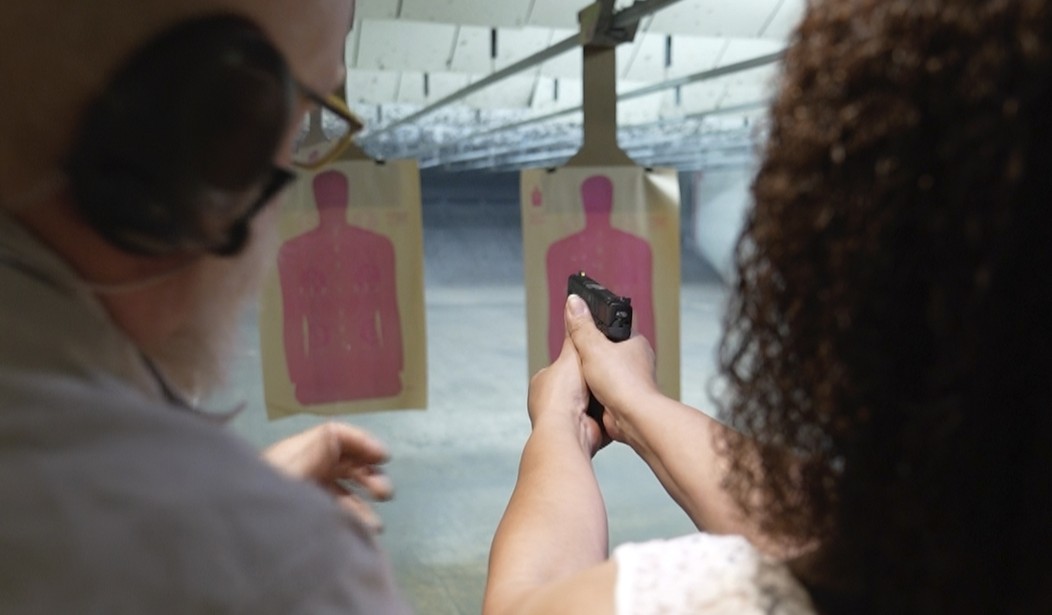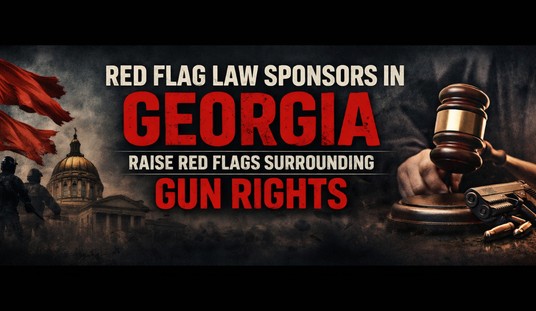The state of Hawaii has some of the most restrictive gun laws in the nation. In fact, in some respects the criminalization of our Second Amendment rights is even worse than it is in California, which is saying something.
That's not just my opinion, by the way. U.S. District Judge Jill Otake said as much when she recently denied a request by Hawaii Attorney General Anne Lopez to halt all proceedings in a challenge to the state's laws prohibiting adults younger than 21 from possessing firearms while a similar case plays out at the Ninth Circuit Court of Appeals.
The California case, known as PWGG v. Bonta, deals with California Penal Code Section 27510, which prohibits FFLs from selling firearms to persons under 21 years of age (with certain exceptions).
Pinales v. Lopez, on the other hand, is taking on Hawaii's requirement that someone be 21 years or older to" acquire, own, or—in effect—possess firearms," as Otake put it. And as the judge says, California's law is less restrictive than the statue under the legal microscope in Hawaii.
Unlike the Hawai‘i statutory scheme, California law “does not prohibit 18-to-20-year-olds from owning, possessing, or carrying firearms, and does not create a ban on acquisition.” For example, 18- to 20-year-olds in California may acquire a gun as a gift from an immediate relative. Subject to some qualifiers, California 18- to 20-year-olds may also purchase certain firearms from licensed dealers if they have a valid hunting license. Likewise, some 18- to 20-year-olds who serve or have served in the armed forces or law enforcement may purchase certain guns.
The district court judge in PWGG rejected the challenge against California's ban on gun sales to young adults by arguing that, while the age group in question are among "the people" who possess the right to keep and bear arms, the prohibition on most gun sales to under-21s is a “presumptively lawful” commercial restriction on the sale of arms. According to Ninth Circuit precedent, “commercial restrictions presumptively do not implicate the plain text of the Second Amendment” unless the regulation “meaningfully constrains” the ability to keep and bear arms.
The plaintiffs in PWGG have argued that blocking most young adults from purchasing most firearms does meaningfully constrain their Second Amendment rights, but the district court judge disagreed, and now we have to see what the Ninth Circuit has to say.
Hawaii's attorney general claims that the issues raised by PWGG and Pinales are so similar that the latter case should be put on hold at least until the Ninth Circuit weighs in on the appeal in the California case. Otake disagreed, noting that while there are some similarities, there are also big differences between the two cases.
The central issue in the order on appeal is absent here: whether California’s law restricting most sales to 18- to 20-year-olds falls within the plain text of the Second Amendment at Bruen’s first step. By contrast, Hawai‘i’s effective ban on possession indisputably affects Plaintiffs’ right to “keep and bear” firearms. Put differently, the basis of the district court’s holding in Chavez is whether the California law constitutes a presumptively valid commercial restriction on firearms. Applying binding Ninth Circuit precedent, the district court concluded that it was. Any holding or analysis that the Ninth Circuit provides on that issue would be irrelevant to this case. And while the Court recognizes that the issues in PWGG need not be controlling to warrant a stay there is a significant difference between a regulatory regime that allows for 18- to 20-year olds to obtain firearms in a variety of circumstances and one that doesn’t.
In fact, as Judge Otake pointed out, the plaintiff in Pinales would like to "receive a gift of a firearm from his mother", which could most likely happened if the pair lived in California. In Hawaii, though, that's out of the question.
Hawaii's A.G. also argued that it would be a waste of taxpayer resources to continue actively litigating Pinales instead of weighting for the Ninth Circuit to decide whether the district court was correct to dismiss PWGG. The plaintiffs, however, argue that any delay will inevitably lead to irreparable harm being done to the Second Amendment rights of young adults in the case.
Otake called the timeline laid out by the plaintiffs "at best speculative and at worst a bit hyperbolic", but she still conceded that "the State’s requested stay may prove lengthy." She also recognized the "possibility of constitutional ."injury is sufficient to deny the stay."
While it’s true that the Court concluded that Plaintiffs failed to establish a likelihood of success, that ruling by nature was preliminary and in no way conclusive on the constitutionality of the law. The Court was also careful to note that the “case touches on a few of the open and hotly-contested issues in Second Amendment challenges,” and that legal landscape was “quickly-shifting.” Under those circumstances it would be foolhardy for the Court to act as if there isn’t a “fair possibility” Plaintiffs are suffering constitutional harm pending this lawsuit. Further, because of the nature of the challenge to the age restriction, the individual plaintiffs in this action may age out of their claims before they’re resolved. Even if other plaintiffs could be found for the case to proceed, the individual plaintiffs that initiated this action may lose their day in court.
All in all, Judge Otake has issued an eminently reasonable ruling here. It could easily be a year or more before the Ninth Circuit decides whether or not to revive the challenge to California's ban on gun sales to young adults, but more importantly, Hawaii's restrictions on under-21s and their Second Amendment rights really are much worse than California's.
This doesn't mean that Otake is ultimately going to find in favor of the plaintiffs, but simply allowing the case to move forward is a small success that will hopefully lead to a much bigger victory: recognition that the right to keep and bear arms is one that "we the people" possess... including adults younger than 21.










